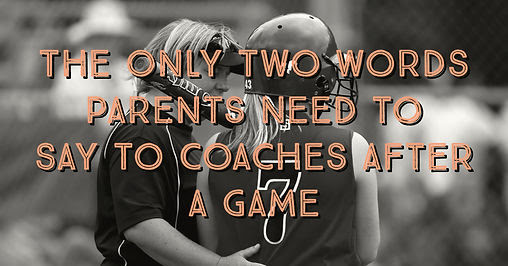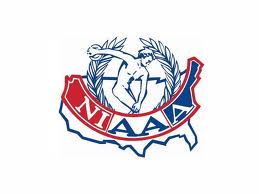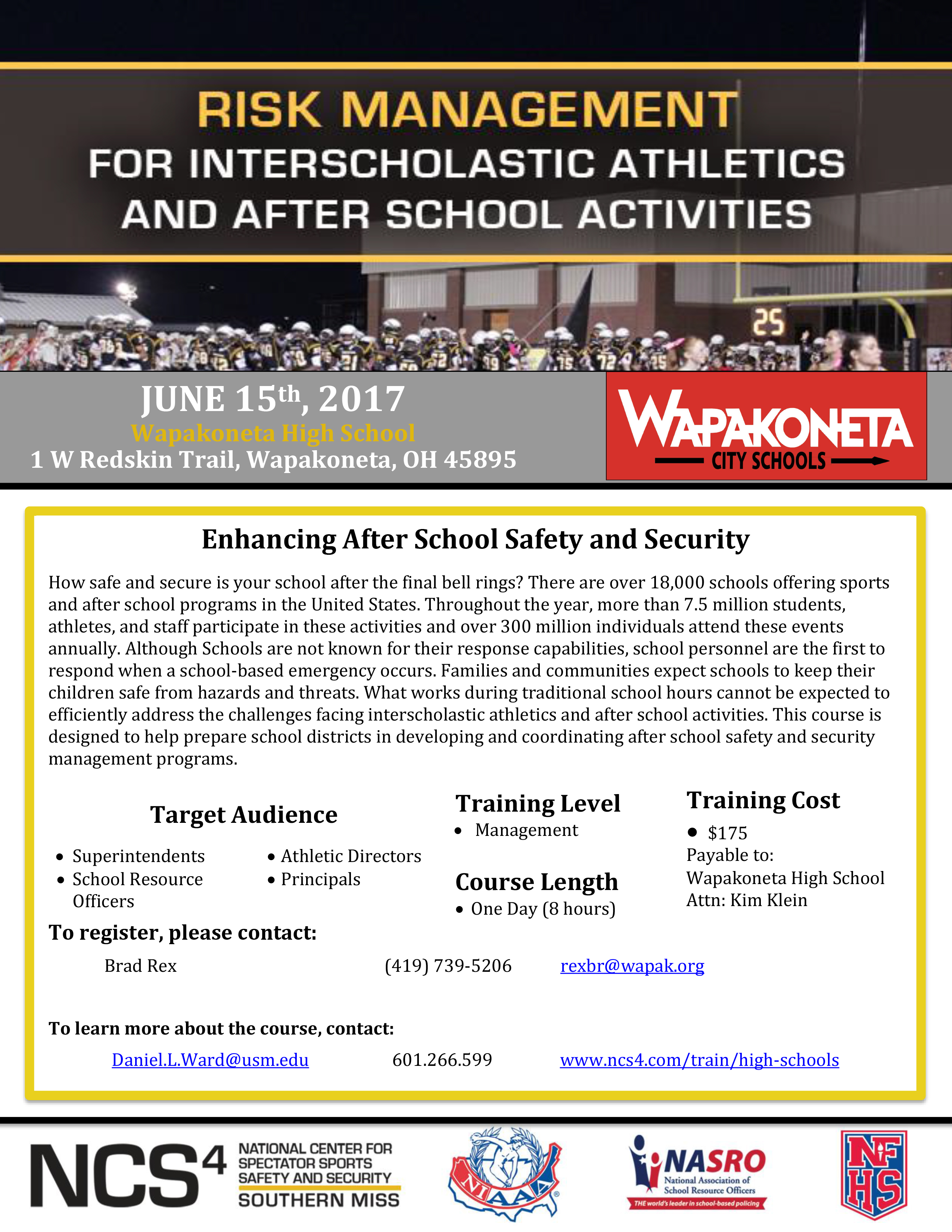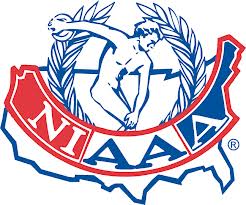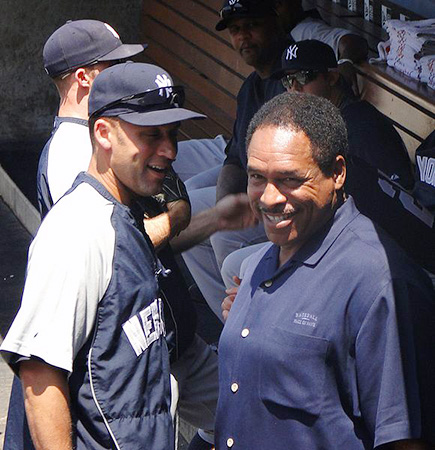Win or lose, we don’t want much… just a “Thank You”
Surviving the Post Game Experience
I don’t think it’s supposed to be this way. In fact, I wish it wasn’t this way.
I hang back in the locker room with my assistant coaches. Part of me is ready to leave: I am in a hurry to grab some food and a drink with my assistants, or to see my family for the first time that day. I am exhausted after a long day and a hard game, and I know that I have to start preparing for the next practice or game.
Yet here I am, lingering in the locker room with my stomach in knots. My head is filled with anxiety and intense worry, and I am dreading walking out the door.
I know that people talk about “pre-game jitters” or “butterflies”, but those are nothing compared to what I feel post-game. It isn’t the final scoreboard that’s bothering me. Win or lose, these feelings are still there, every time.
Finally, I cannot stall any longer. My coaches and I step out of the locker room door and into the gymnasium, hoping it has been cleared out.
No such luck. Parents, players, and fans are still lingering. We look for the nearest exit and start moving towards the door. My assistant coaches know not to leave me by myself. There is strength in numbers, and their presence makes me less vulnerable to an attack.
I feel like I am in some zombie apocalypse movie, trying to escape an infested building. I am unsure of who to trust. Who is still human? Who has turned?
I might hear the occasional, “Good game, coach!” or, if we lost, someone might say, “Tough one tonight.” But I know not to trust it. I reply with a wave and a simple, “Thanks for coming!” All the while, I feel like all eyes are on me. I am afraid to even look at them. I am afraid of their judgment, and of what could happen if I even slightly engage them. Will they turn on me?
Finally, we make it to the exit. I am safe… for now.
However, at home, I wait in anxious anticipation for an email or text message, saying: “Why did my son not play in the fourth quarter?” or “Who do you think you are telling my son to NOT shoot the ball?” or “I am sick of you and your crazy philosophies. You disgust me.” or even “My son hates basketball this season and it is your fault.”
My Greatest Coaching Fear
What am I afraid of? My fear is not of media interviews. I am not afraid of player unrest. I am not even bothered by the judgment and criticism of fans. All of those things are part of the job, and I understand that.
What I fear is the parents.
After a win, you might think that a coach would be eager to strut out in front of fans, looking for praise. But those of us who have been coaching for long enough know better. Experience has taught us that winning the game is not the only thing that parents wanted that night. They wanted the perfect win. This means they wanted lots of playing time for their child. Perhaps even a starting position or for their child to be the leading scorer.
As coaches, experience teaches us that we must be weary of those parents and fans that are quick to praise. The biggest fans are usually the first to jump ship after a hard loss, or after their child sees a decrease in playing time or performance. Even a simple comment like, “Great job, Coach” can turn into “What were you thinking out there?!” within the span of a few games. Someone saying, “Great win!” only creates more pressure to make sure I get another win in the next game. But the truth is that I don’t measure my success by the scoreboard, and I don’t want parents to measure my coaching ability on that criteria, either.
After a loss, you might think that a coach’s biggest concern would be, “How are the players going to handle this?” But those of us that have been coaching for a long time know that this is not the case. Experience has taught us that parents take defeat much harder than their children do these days. As a coaching staff, we halfheartedly joke that I need a security escort to keep me safe from parents. But in today’s sporting culture, this is not a ridiculous request. I actually do ask my coaching staff to walk alongside me as I exit the gym.
Is my anxiety and elusiveness fair to the more supportive and appreciative parents? No, not at all. But my experiences, like so many other coaches, have led me to build walls to protect myself. I’ve been cussed out. I’ve received threatening emails, texts, and calls. I’ve even been run off the road while driving. I’ve faced the crowd of disapproving looks after a loss, even after I have given so much to the program.
At the end of the day, I get it. I am the one making the choices, and sometimes, I do make mistakes. More than any other person, I am responsible for what transpires in the game. But I am not looking for praise, high-fives, or a gold star. Neither am I looking for people to comfort me or say, “It’s not your fault.”
Regardless of whether a parent feels we did a good or bad job that game, we just want to be appreciated for the sacrifices we make as coaches. All we really want is simply to hear two words… “Thank You”.
Two Words
Coaches don’t enjoy stepping outside that locker room door after every game and having to worry about who has “turned” on them today! Instead, they want to build relationships with parents that are healthy and supportive.
When parents praise us for winning, it raises pressure and implies the expectation that we must continue to perform well in order to retain their approval. When parents criticize us, it leaves us questioning whether the sacrifices we make are really worth it.
As nice as it would be to have every parent believe that I’m a “great coach”, I understand that this is not a realistic outcome. Instead, I hope for something much simpler. I hope for parents to understand that, at the end of the day, I did my very best.
I am hard on myself after both wins and losses, even without the criticism of others. I have sacrificed time away from my own family to serve their children. I make that sacrifice because I truly do love and care for their children, and I want to see them succeed.
So, parents! Whether you think we coached the best game ever, or you think we blew the game by making horrible decisions; whether you are elated with your child’s performance, or you think we didn’t give them enough “opportunity” to excel… all you need to say is, “Thank you”.
We don’t need criticism or praise. We don’t need coaching awards or a big salary. All we really need is to feel like we’re appreciated for the sacrifices we make to coach your children.
Surviving the Post Game Experience
I don’t think it’s supposed to be this way. In fact, I wish it wasn’t this way.
I hang back in the locker room with my assistant coaches. Part of me is ready to leave: I am in a hurry to grab some food and a drink with my assistants, or to see my family for the first time that day. I am exhausted after a long day and a hard game, and I know that I have to start preparing for the next practice or game.
Yet here I am, lingering in the locker room with my stomach in knots. My head is filled with anxiety and intense worry, and I am dreading walking out the door.
I know that people talk about “pre-game jitters” or “butterflies”, but those are nothing compared to what I feel post-game. It isn’t the final scoreboard that’s bothering me. Win or lose, these feelings are still there, every time.
Finally, I cannot stall any longer. My coaches and I step out of the locker room door and into the gymnasium, hoping it has been cleared out.
No such luck. Parents, players, and fans are still lingering. We look for the nearest exit and start moving towards the door. My assistant coaches know not to leave me by myself. There is strength in numbers, and their presence makes me less vulnerable to an attack.
I feel like I am in some zombie apocalypse movie, trying to escape an infested building. I am unsure of who to trust. Who is still human? Who has turned?
I might hear the occasional, “Good game, coach!” or, if we lost, someone might say, “Tough one tonight.” But I know not to trust it. I reply with a wave and a simple, “Thanks for coming!” All the while, I feel like all eyes are on me. I am afraid to even look at them. I am afraid of their judgment, and of what could happen if I even slightly engage them. Will they turn on me?
Finally, we make it to the exit. I am safe… for now.
However, at home, I wait in anxious anticipation for an email or text message, saying: “Why did my son not play in the fourth quarter?” or “Who do you think you are telling my son to NOT shoot the ball?” or “I am sick of you and your crazy philosophies. You disgust me.” or even “My son hates basketball this season and it is your fault.”
My Greatest Coaching Fear
What am I afraid of? My fear is not of media interviews. I am not afraid of player unrest. I am not even bothered by the judgment and criticism of fans. All of those things are part of the job, and I understand that.
What I fear is the parents.
After a win, you might think that a coach would be eager to strut out in front of fans, looking for praise. But those of us who have been coaching for long enough know better. Experience has taught us that winning the game is not the only thing that parents wanted that night. They wanted the perfect win. This means they wanted lots of playing time for their child. Perhaps even a starting position or for their child to be the leading scorer.
As coaches, experience teaches us that we must be weary of those parents and fans that are quick to praise. The biggest fans are usually the first to jump ship after a hard loss, or after their child sees a decrease in playing time or performance. Even a simple comment like, “Great job, Coach” can turn into “What were you thinking out there?!” within the span of a few games. Someone saying, “Great win!” only creates more pressure to make sure I get another win in the next game. But the truth is that I don’t measure my success by the scoreboard, and I don’t want parents to measure my coaching ability on that criteria, either.
After a loss, you might think that a coach’s biggest concern would be, “How are the players going to handle this?” But those of us that have been coaching for a long time know that this is not the case. Experience has taught us that parents take defeat much harder than their children do these days. As a coaching staff, we halfheartedly joke that I need a security escort to keep me safe from parents. But in today’s sporting culture, this is not a ridiculous request. I actually do ask my coaching staff to walk alongside me as I exit the gym.
Is my anxiety and elusiveness fair to the more supportive and appreciative parents? No, not at all. But my experiences, like so many other coaches, have led me to build walls to protect myself. I’ve been cussed out. I’ve received threatening emails, texts, and calls. I’ve even been run off the road while driving. I’ve faced the crowd of disapproving looks after a loss, even after I have given so much to the program.
At the end of the day, I get it. I am the one making the choices, and sometimes, I do make mistakes. More than any other person, I am responsible for what transpires in the game. But I am not looking for praise, high-fives, or a gold star. Neither am I looking for people to comfort me or say, “It’s not your fault.”
Regardless of whether a parent feels we did a good or bad job that game, we just want to be appreciated for the sacrifices we make as coaches. All we really want is simply to hear two words… “Thank You”.
Two Words
Coaches don’t enjoy stepping outside that locker room door after every game and having to worry about who has “turned” on them today! Instead, they want to build relationships with parents that are healthy and supportive.
When parents praise us for winning, it raises pressure and implies the expectation that we must continue to perform well in order to retain their approval. When parents criticize us, it leaves us questioning whether the sacrifices we make are really worth it.
As nice as it would be to have every parent believe that I’m a “great coach”, I understand that this is not a realistic outcome. Instead, I hope for something much simpler. I hope for parents to understand that, at the end of the day, I did my very best.
I am hard on myself after both wins and losses, even without the criticism of others. I have sacrificed time away from my own family to serve their children. I make that sacrifice because I truly do love and care for their children, and I want to see them succeed.
So, parents! Whether you think we coached the best game ever, or you think we blew the game by making horrible decisions; whether you are elated with your child’s performance, or you think we didn’t give them enough “opportunity” to excel… all you need to say is, “Thank you”.
We don’t need criticism or praise. We don’t need coaching awards or a big salary. All we really need is to feel like we’re appreciated for the sacrifices we make to coach your children.














